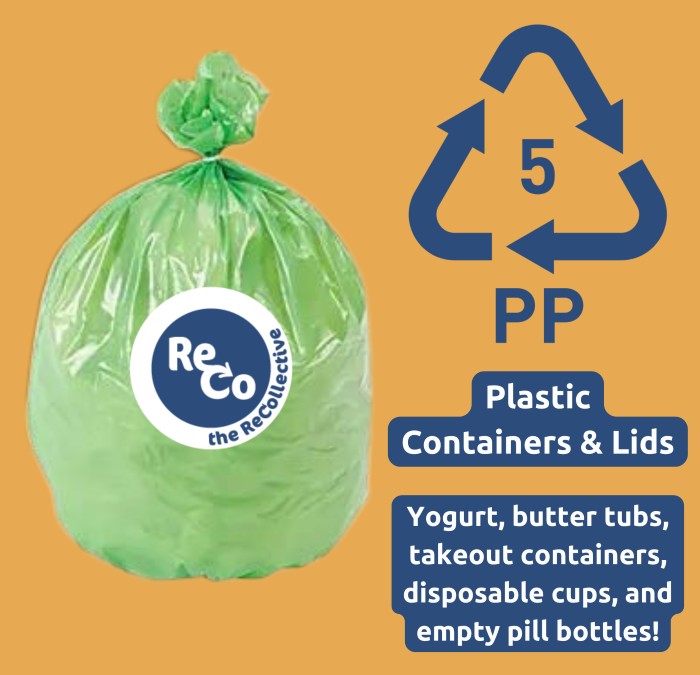After the success of our #5 plastics pilot in March, we’re thrilled to announce that ReCollective is now accepting #5 plastics every month, FOREVER! This is a significant step in our mission to reduce waste and increase recycling rates for materials that often get overlooked.
Why #5 Plastic Recycling Matters
Did you know that less than 3% of polypropylene (#5) is recycled in the U.S.? This statistic is alarming, but ReCollective is committed to changing that. By expanding our recycling services to include #5 plastics like yogurt tubs, butter containers, takeout boxes, disposable cups, and empty pill bottles, we’re making it easier for our community to keep these items out of landfills.
What’s Included in Your ReCollective Membership
At ReCollective, we pride ourselves on our ability to collect and recycle 26+ unique hard-to-recycle materials annually—all included in your monthly membership fee. While most of these materials are recycled at no additional charge, a few, like #5 plastics, require extra effort or aren’t needed by every member. That’s why we’ve made #5 plastics an add-on service—so you only pay for what you need.
If you’re interested in recycling #5 plastics with us, simply request a #5 bag from the Member Dashboard Shop for just $2.
How to Identify and Prepare Your #5 Plastics
Identifying #5 Plastics:
- Symbol: Look for the #5 recycling symbol, often accompanied by “PP.”
- Color: These plastics are rigid, lightweight, and usually colored or translucent—not clear.
- Flex: They’re more rigid than other plastics but still have some give under pressure.
Preparing Your #5 Plastics:
- Remove any food debris.
- Ensure materials are clean and dry—no need to be spotless!
- Stickers and labels can stay on; we’ll take care of them during the recycling process.
- Place your #5 items in the provided Green bag.
Common Mistakes to Avoid
To help keep our recycling streams clean, avoid mixing in the following plastics with your #5s:
- #3 PVC: Typically used for clear bottles, this plastic is less rigid and not widely recycled.
- #2 HDPE: Found in opaque items like milk jugs and detergent bottles.
- #6 PS: Often found in takeout containers and other similar items.
By following these guidelines, you’re not just recycling—you’re ensuring that the materials are processed correctly and effectively.

